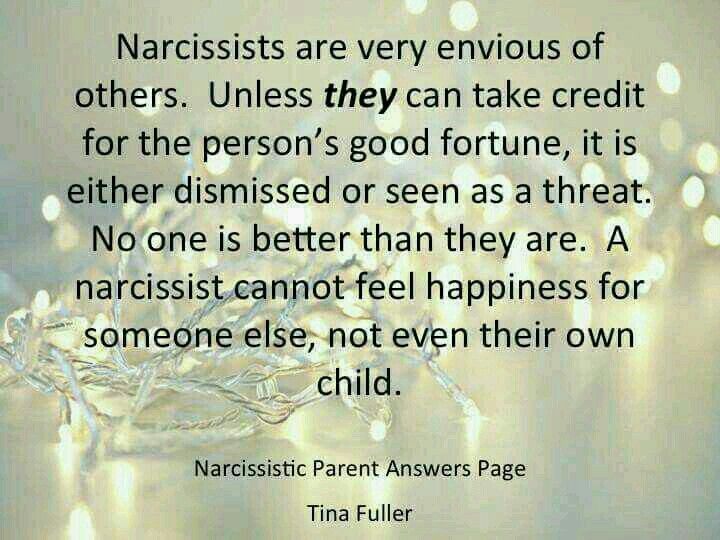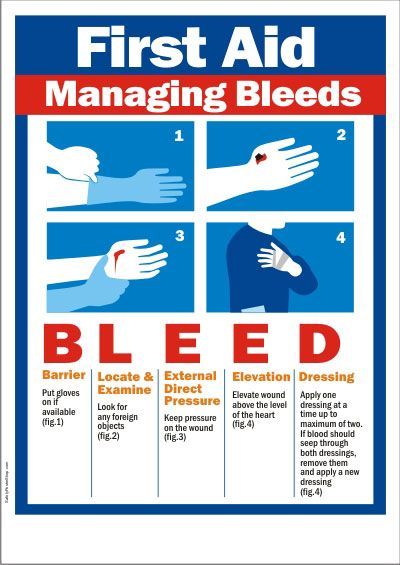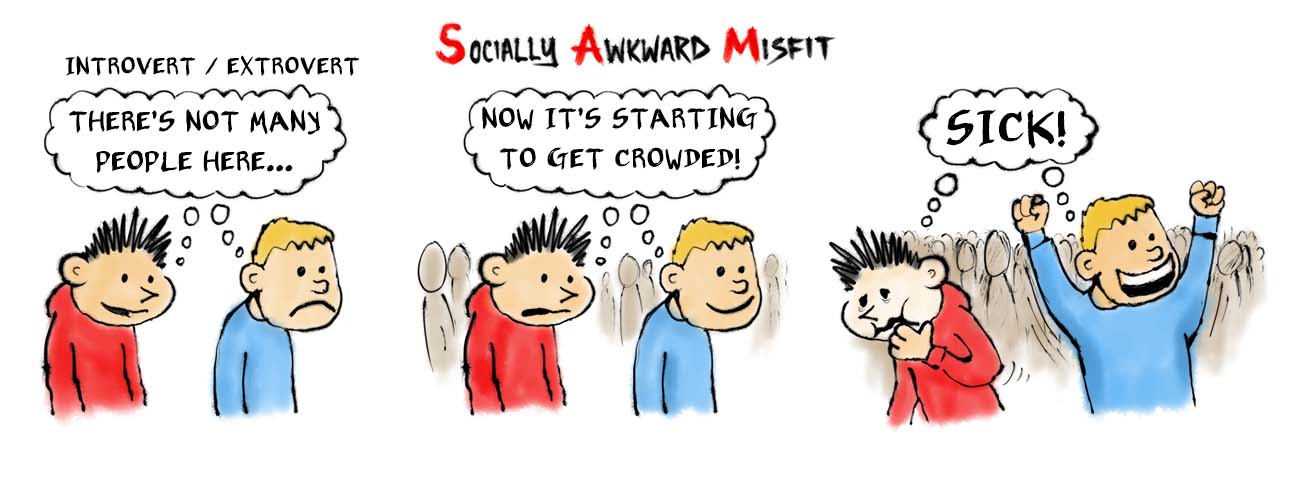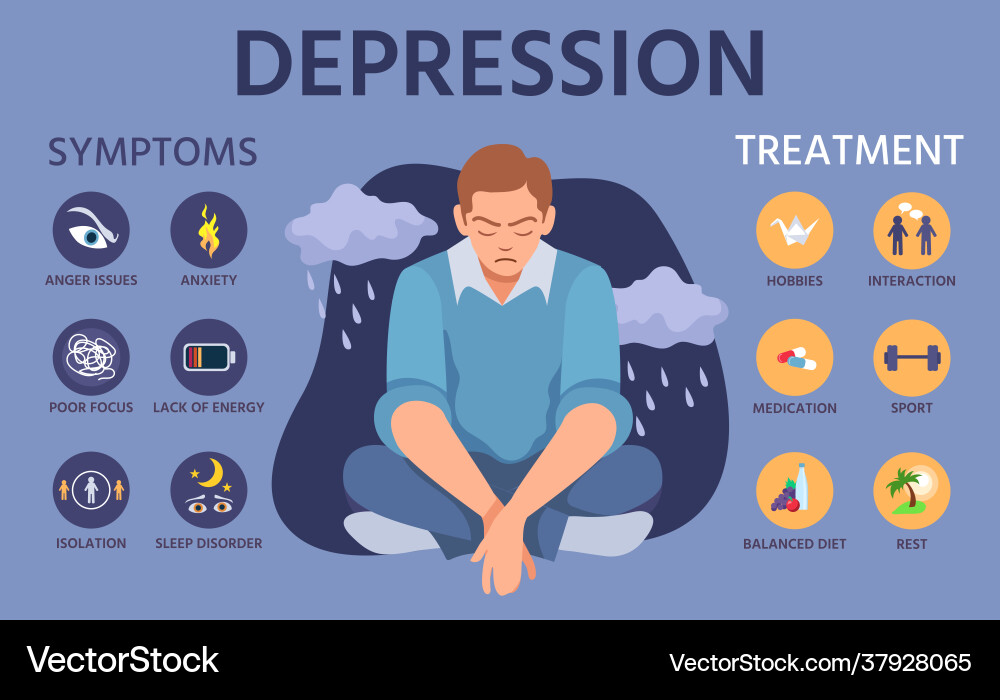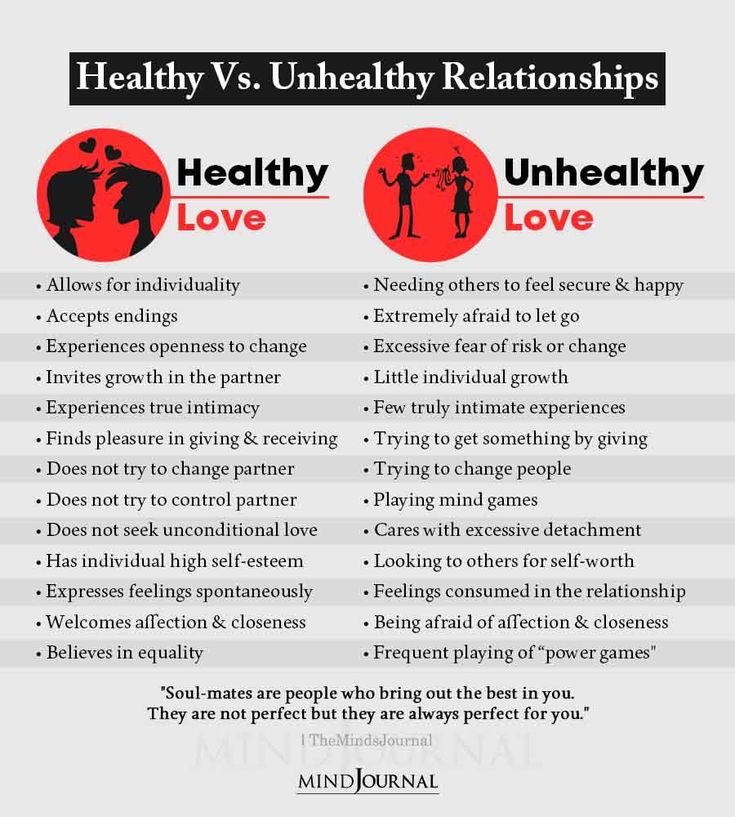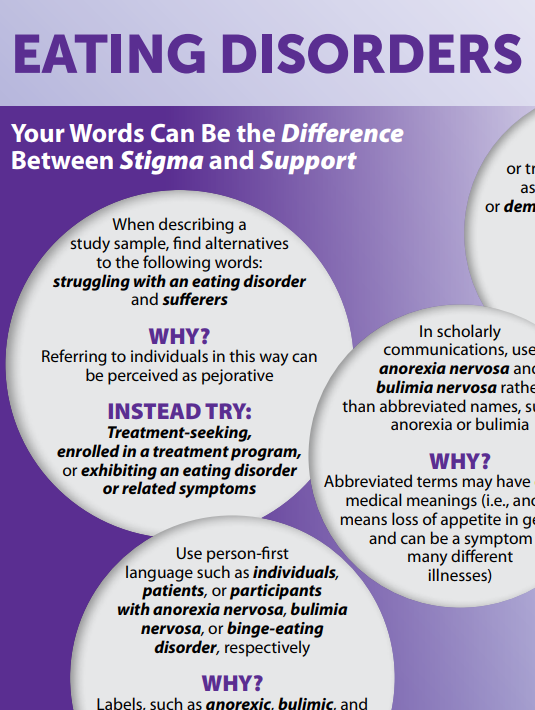Can someone with narcissistic personality disorder love
How to Cope When You Love a Narcissist
We can't always choose who we love. While a person often feels powerless when falling romantically for another person, emotions are ultimately controllable. Perhaps, you have chosen to love someone with a narcissistic personality. This is a challenging proposition, but you can have a successful relationship with a person suffering from this personality disorder. Learn the coping strategies that can make your partnership work.
Become Educated About Narcissism
Learn as much as you can about narcissism. It is a complicated mental illness centering on an individual's inflated sense of self-importance accompanied by a lack of empathy for other people. While this is an intimidating definition, narcissistic individuals can and do fall in love and commit to romantic involvements. Research the complexities of the disorder, and you will discover such things as narcissists often experience doubts, become seriously depressed and feel shame.
They are people, not caricatures, and this should never be forgotten. Read about the symptoms, causes, risk factors and treatments of the disorder to gain a better understanding and empathy for your lover.
Acknowledge Emotions
Relationships with narcissists are often highly emotional. Your partner will likely have many moments in which he displays strong feelings of anger, disgust, sadness and frustration. Guess what? So will you. Do not try to suppress his and your emotions, instead attempt to channel them appropriately. Encourage your partner to tell you what he is feeling without shouting, cursing or otherwise acting out. You do the same in expressing your emotions. Watch out for manipulation attempts on the part of your lover as this is a common strategy employed by narcissists. Communication is vital. If he is unwilling to have a serious discussion at a particular time, calmly inform him you will address the issue when he is able to control himself. Do not give him the emotional reaction he is likely craving.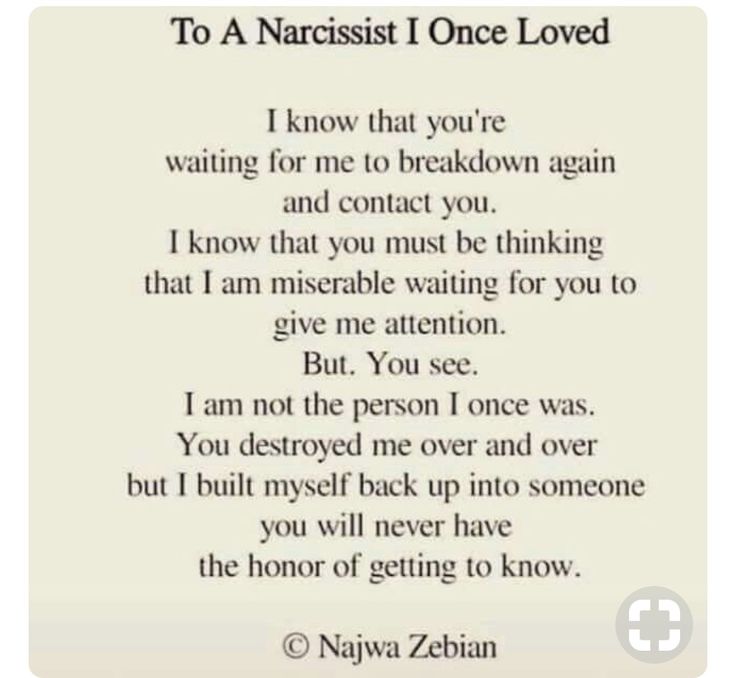
Pick Your Battles Wisely
Don't turn every slight your partner makes against you into a war. Accept that part of this condition manifests itself in snide comments, veiled or not-so-veiled insults, thoughtless actions and other frustrating ego-centered behavior. For your own mental health, you must decide what is necessary to respond to and what to let go. Set the boundaries that work for you, remind yourself and your partner of the limits and require apologies when you need them.
Take Breathers from the Turmoil
You need time to yourself and your partner needs the same. Coping with a mental illness is often exhausting for you and him. Take time off especially during periods when your partner's symptoms are escalating. Physically remove yourself from his presence for the amount of time you need to reflect and restore your energy and perspective. Alternate rest periods with activities. Enjoy the company of friends, vent all you like and take out frustrations on a tennis court, soccer field or batting cage.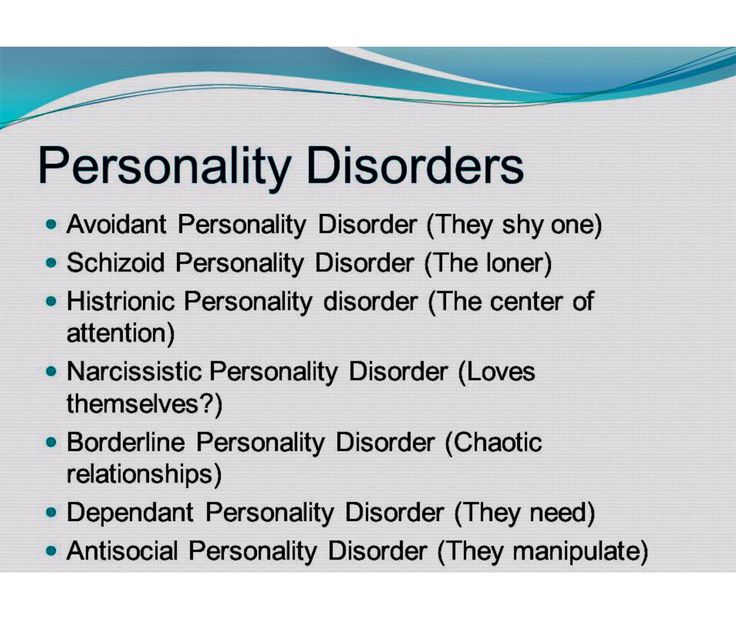 Tell your partner you need these times away, and do not allow him to make you feel guilty for taking them.
Tell your partner you need these times away, and do not allow him to make you feel guilty for taking them.
Encourage Therapy
The primary treatment course for narcissism is psychotherapy. Many people with the disorder deny they need help so you might have to insist on it. If your partner refuses professional assistance, you must decide to either leave or stay in the relationship. Should you choose to remain involved, know that your lover's disorder will not likely change. Hopefully, he will be receptive to psychotherapy. In this case, you should follow his therapist's advice on how you can support his treatment.
Loving someone with a personality disorder of narcissism is challenging. You must maintain your own self-confidence, exercise emotional control and remain empathetic in the face of challenging words and actions.
Discover much more about mental health issues when you contact me.
The Narcissists Guide to Being a Loving Partner
Being a narcissist in love isn't easy.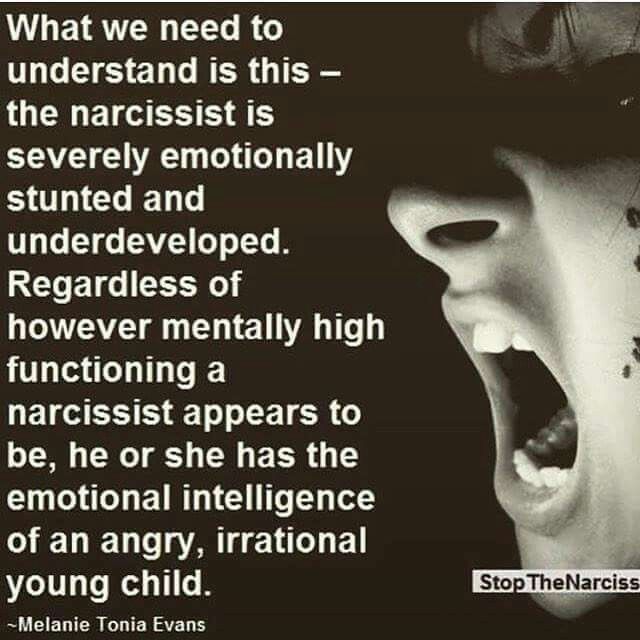 Whether you simply suspect your own narcissism, have been accused of it by your lover, or have a clinical diagnosis, one thing is the same: It's hard to think about anybody but yourself. Chances are, you've been this way your entire life, narcissism happens in infancy after all, and you have simply never been all that moved by other people's emotions. But you're not inhuman.
Whether you simply suspect your own narcissism, have been accused of it by your lover, or have a clinical diagnosis, one thing is the same: It's hard to think about anybody but yourself. Chances are, you've been this way your entire life, narcissism happens in infancy after all, and you have simply never been all that moved by other people's emotions. But you're not inhuman.
Being a narcissist doesn't stop you from needing other people, from falling in love, and caring deeply about those close to you. It just makes empathy an uphill battle. So for the single Narcissist out there preparing to be good mates and for coupled narcissists trying to be better mates, here's a quick handbook on how to be a loving romantic partner and generally a better person.
1. Make Everything a Two-Way Street
The narcissists' biggest weakness is a narrow self-focused perspective, which comes across as selfishness. Narcissists take care of their own needs first and have a hard time perceiving the needs of others.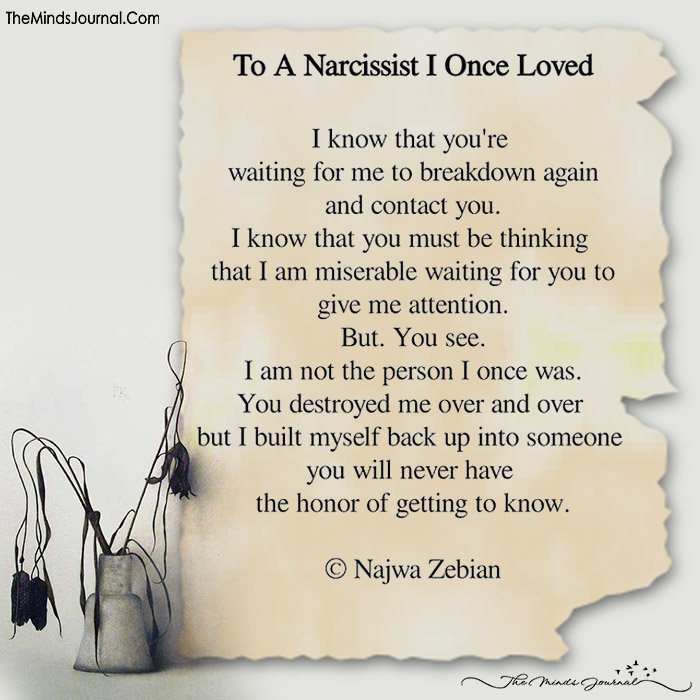 The best quick-fix for making your partner feel left out is to simply include them in everything.
The best quick-fix for making your partner feel left out is to simply include them in everything.
The trick? Always remember to adjust for their preferences.
When you want a drink, offer to grab your partner a drink of their choice. When you're cold, offer your partner a sweater or if they want to snuggle under a blanket. If you're bored, try asking your partner if they want to blow the scene with you. Extend your bubble of self-care to include your partner and they will feel your love. Even if it's clumsy at first.
2. Check In All the Time
Most narcissists assume that people feel the same way they do. A bad day seems like it should be bad for everyone. Being happy can also mean that you accidentally overlook the pain of others. Remember that your partner has a separate experience and keep up with them. Ask them how their day went, how they feel, and what they think about things. Then let that guide your conversation and the day you share.
Key Phrases:
- "What do you want to do today?"
- "How did work go for you?"
- "What are you thinking about?
- "Did you have any trouble while I was gone?"
- "What's going on with you?"
3.
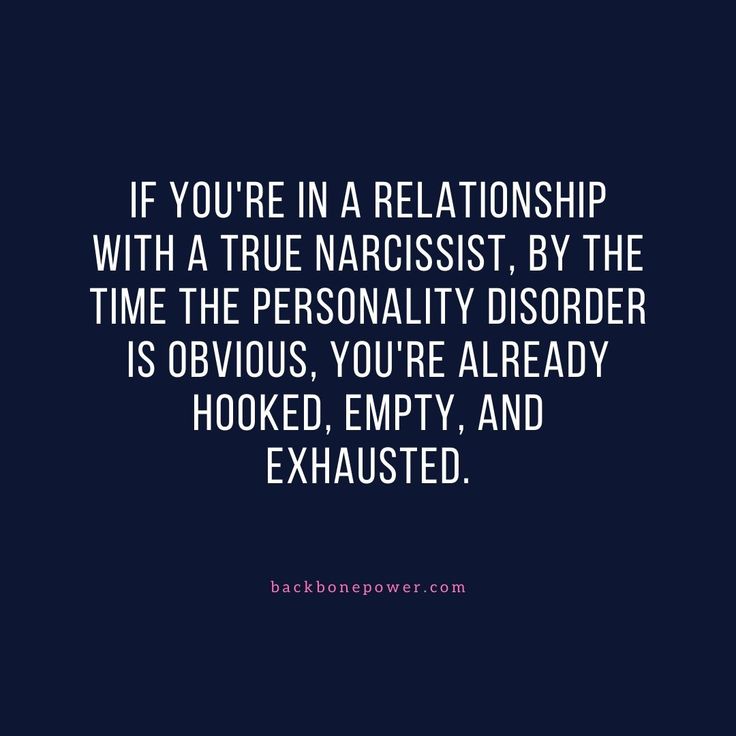 Keep Your Promises
Keep Your PromisesNarcissists are also notorious for flexible behavior, which can lead to breaking promises without noticing. Forgetting birthdays would matter to you, but it's all too easy to forget the birthdays of others. Start keeping track of the promises you make and the things you should remember, and remember them. Use life organizing apps, online calendars, writing on your hand: whatever it takes to keep promises to the people you care about. And be understanding when others are forgetful.
Showing your devotion with intentional actions is a good way to counteract your natural lack of empathy. If a partner sees that you put effort into caring, it reassures them that they matter to you.
4. Ask About Feelings
Being a narcissist is a lot like missing any other sense. People have emotions, you just don't' detect them passively. Never forget that your partner has a full range of their own emotions that also respond to every statement or event. The best way to compensate for narcissism is simply to ask how your partner is feeling on a regular basis.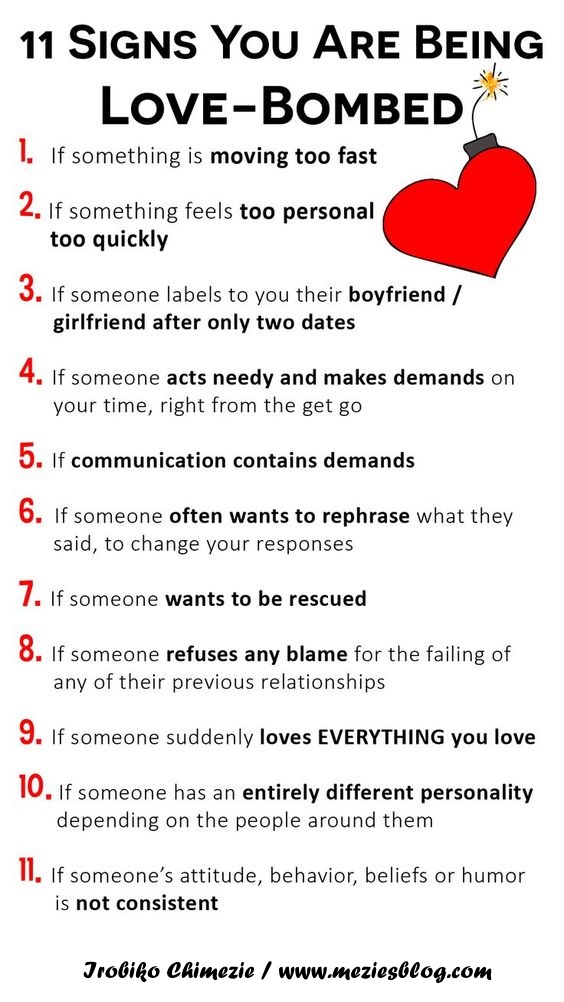 Make it a habit to check in with them emotionally all the time, and with each conversation topic.
Make it a habit to check in with them emotionally all the time, and with each conversation topic.
The key here is to insist that you want to know. People aren't used to openly expressing their emotions, but this is an important communication for any couple with or without narcissism. Show your honest interest in your partner's emotions and encourage them to open up so that you can know how they feel and consider their feelings when you act.
Key Phrases:
- "How do you feel this morning?"
- "How do you feel about that?"
- "What do you feel like doing today?"
- "Is this too much for you?"
- "Are you bored with this?"
5. Offer to Do Things for Your Partner
Partners of narcissists often find themselves giving way to your relentless self-focus, but that's not actually how you want the relationship to go. If you are energetic, offer to do things for your partner like bring them food and drink, clean up, take them on a date, or just give them a sexy backrub at home.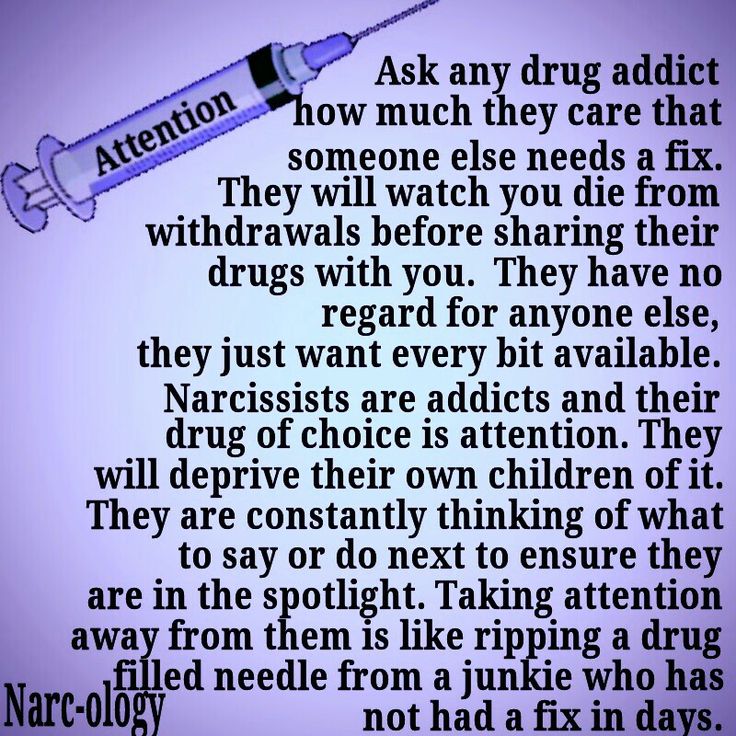 The biggest complaint of narcissts' partners is that they don't get enough out of the relationship. Doing things for your partner can be very enjoyable for both of you and even the emotional balance.
The biggest complaint of narcissts' partners is that they don't get enough out of the relationship. Doing things for your partner can be very enjoyable for both of you and even the emotional balance.
When your partner is working on something nearby, offer to join them and help what they're doing. Chop something with them in the kitchen, fold half the load of laundry, or start handing them tools. This is a great way to be supportive.
Key Phrases:
- "What can I do for you?"
- "Can I get you anything while I'm up?"
- "You look tired, can I give you a backrub?"
- "What do you want to see when you get home?"
6. Credit Where Credit's Due
Finally, narcissists often seem like they're taking credit for any good thing that happens. In reality, this is a side-effect of feeling like the whole world is a part of you. Your partner is actually afraid that you won't value the things they do for you, like arrange fun outings or cook a nice meal.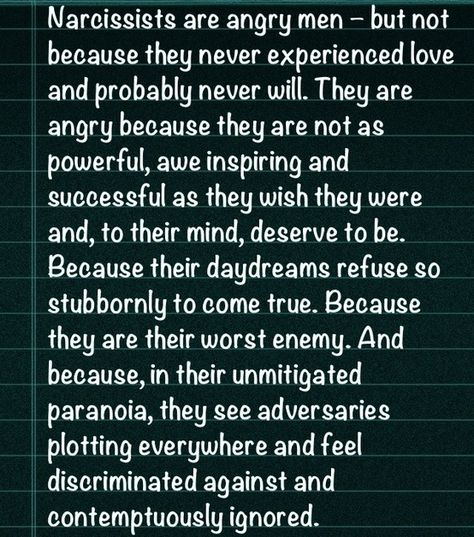 Reassure them by always giving credit where credit's due.
Reassure them by always giving credit where credit's due.
Find ways to thank your partner all the time for good ideas or a good time together. When you repeat something they've said, give them credit in the conversation. If they do something for you, show your gratitude and find a way to compliment them.
As a bonus, complimentary behavior is likely to get you more credit in conversations as well.
Key Phrases:
- "I remember, you told me that...."
- "Coming here was a wonderful idea, darling"
- "Thank you so much for cooking. This is delicious"
- "You're so kind to clean up. Is there anything I can do to help?"
- "We should have done this sooner, thank you for suggesting it"
- "Being here with you has been amazing"
You're Already On the Right Path
Being a narcissist doesn't mean you can't be a loving and supportive partner. Every couple has hurtles to overcome together and the key is always being willing to try.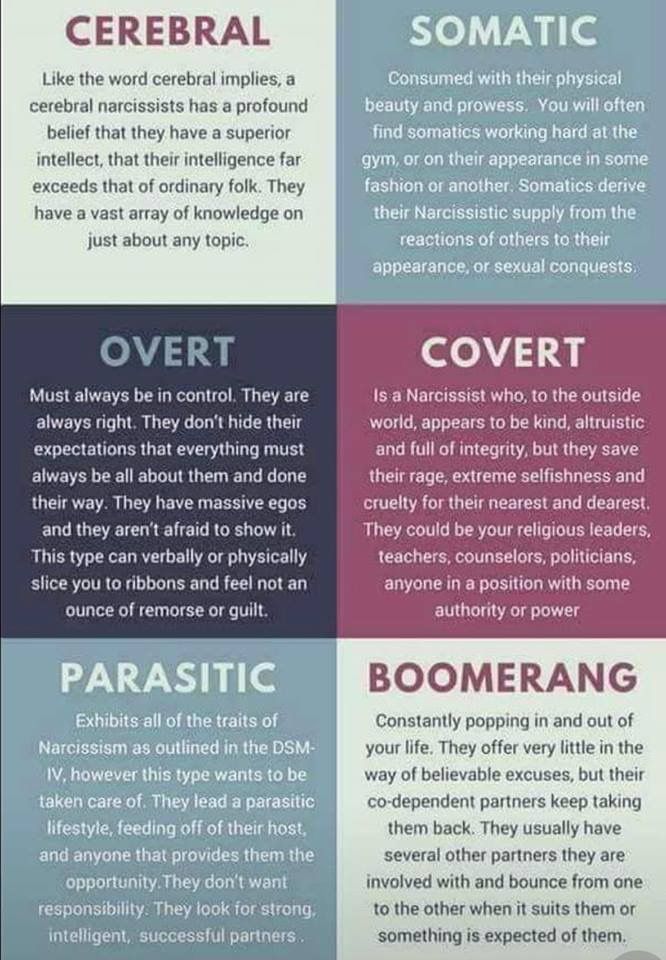 Simply by reading this guide and trying to overcome your narcissism as a partner is a step in the right direction. The best thing any couple can start with is a mutual agreement to try.
Simply by reading this guide and trying to overcome your narcissism as a partner is a step in the right direction. The best thing any couple can start with is a mutual agreement to try.
Partners of narcissists often feel left out and uncared for. Hopefully, this guide has given you the tools you'll need and a good starting point to show your real love for them through actions, words, and considering your partners needs right next to your own.
Getting Help When You Need It
Finally, never forget that you don't have to face your relationship challenges alone. If you are trying to express love but your partner still seems dissatisfied, it's okay to call on the help of a professional. Couple's counseling can help you overcome your own limitations and help your partner come out of their shell. Ideally, your partner will get better at expressing their feelings while you practice consideration and detecting visible emotions. With professional guidance and an outside perspective, you can work around your narcissism and grow closer as a couple.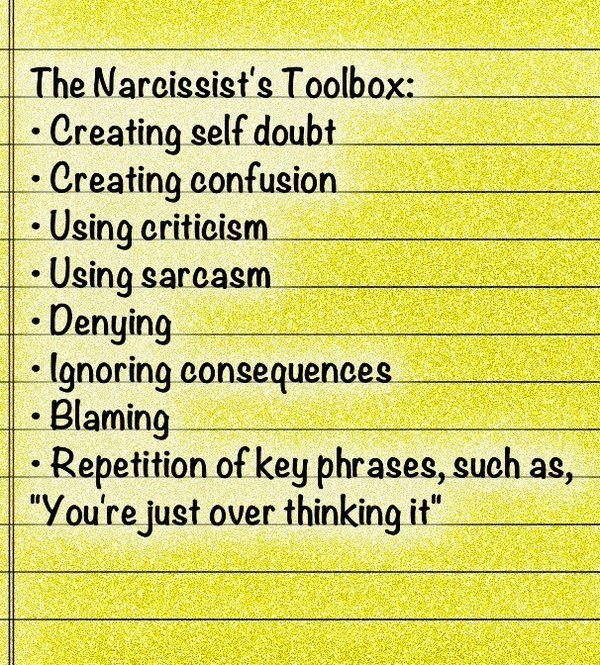
If you'd like more tips on how to handle personality disorders in loving relationship or consultation on your unique relationship concerns, contact me today. I'm here to help.
Can Narcissists Love? | Psych Central
Many people who have had a relationship with someone with narcissistic traits come away with the question: Can a narcissist really love you?
A hasty answer would be “No.” However, there is a distinct difference between someone who is diagnosed with narcissistic personality disorder and a person who has narcissistic traits.
People with narcissistic personality disorder (NPD) have traits that are in opposition with the ability to love another person, at least in the way that people without NPD understand love. These traits include a lack of empathy, a sense of entitlement, and a tendency to exploit others for personal gain.
However, NPD exists in just a small number of people — an estimated 0.5%–5% of adults in the United States. People with narcissistic traits but not NPD, on the other hand, likely experience love in the same way as others without NPD.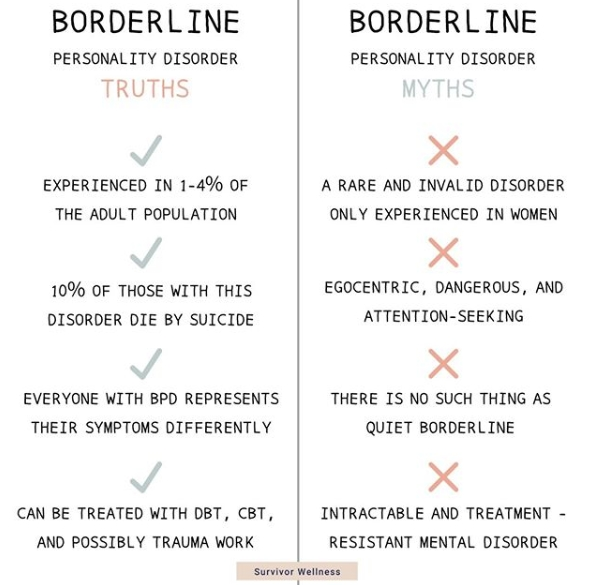
NPD is a mental health condition characterized by pathological personality traits of grandiosity (an inflated sense of self), attention-seeking behaviors, and lack of empathy.
According to the Diagnostic and Statistical Manual of Mental Disorders, 5th edition (DSM-5) criteria for diagnosing NPD, an individual must have five or more of the following features:
- inflated sense of self-importance, or grandiosity
- arrogant behaviors and attitudes
- envious toward others
- lack of empathy
- exploits others for their own advantages
- an excessive need for admiration
- preoccupation with fantasies of unlimited success, power, intelligence, or beauty
- sense of entitlement
If someone in a relationship has NPD — be it a family, friend, or romantic relationship — symptoms can cause significant challenges.
Someone who is diagnosed with NPD does not really possess the ability to love another person in the way most people understand love.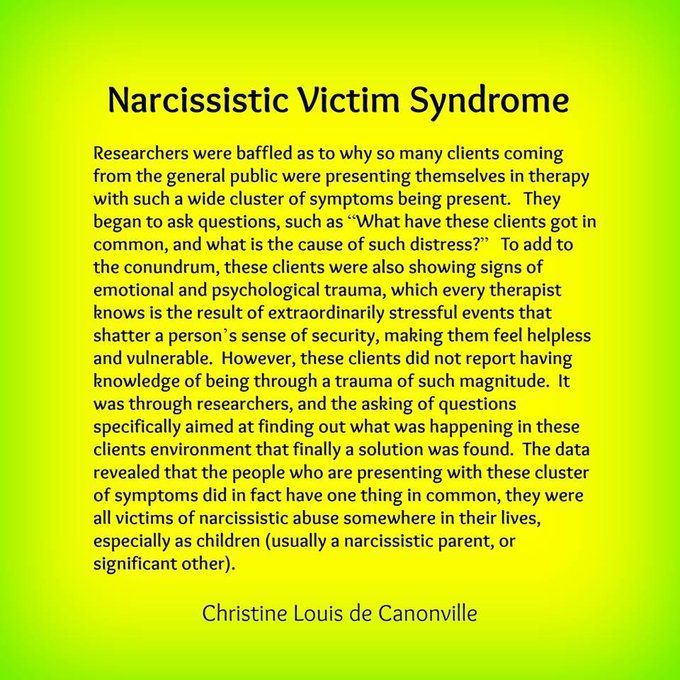 It may sound harsh, but many of the features of NPD are antithetical to love.
It may sound harsh, but many of the features of NPD are antithetical to love.
Narcissists may show you love and act in loving ways, but this tends to be conditional, in that displays of love depend on what you can give them in return. For people with NPD, relationships tend to be transactional.
Love is not self-serving, proud, boastful, exploitative, or envious. A relationship — whether romantic or platonic — with someone who is diagnosed with NPD can be toxic, drama-filled, and in some cases, traumatic.
An individual may find themselves being gaslit, “love bombed,” and manipulated.
It’s important to establish and maintain healthy boundaries when in a relationship with someone who’s diagnosed with NPD. This is a serious mental health disorder and treatment for the disorder is strongly encouraged.
However, setting boundaries may not be enough to keep you safe. If you think there are elements of abuse in your relationship, it’s important to talk with someone who can help.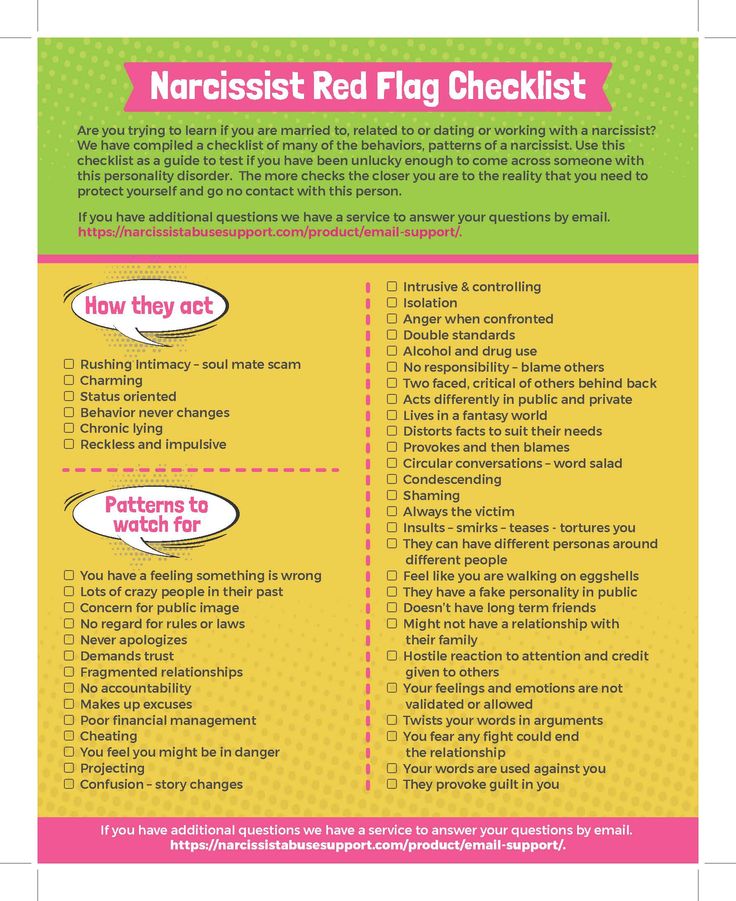
Find help for domestic abuse
If you think you may be experiencing domestic abuse, support is available:
- You can call the National Domestic Violence Hotline at 800-799-7233 for free, confidential, 24/7 care and support.
- You can contact loveisrespect.org by calling 866-331-9474 or texting LOVEIS to 22522 for support if you think you could be in an abusive relationship.
You can also visit The National Coalition Against Domestic Violence (NCADV), a domestic violence prevention advocacy group with a list of resources for relationship abuse help.
Someone can have narcissistic traits without meeting the criteria for an NPD diagnosis. Many people act in narcissistic ways at some point in their lives.
Too often, people refer to someone as being a “narcissist” because of behaviors or attitudes that resemble the features of NPD. It’s important to understand that having narcissistic traits does not mean a person is not able to love someone.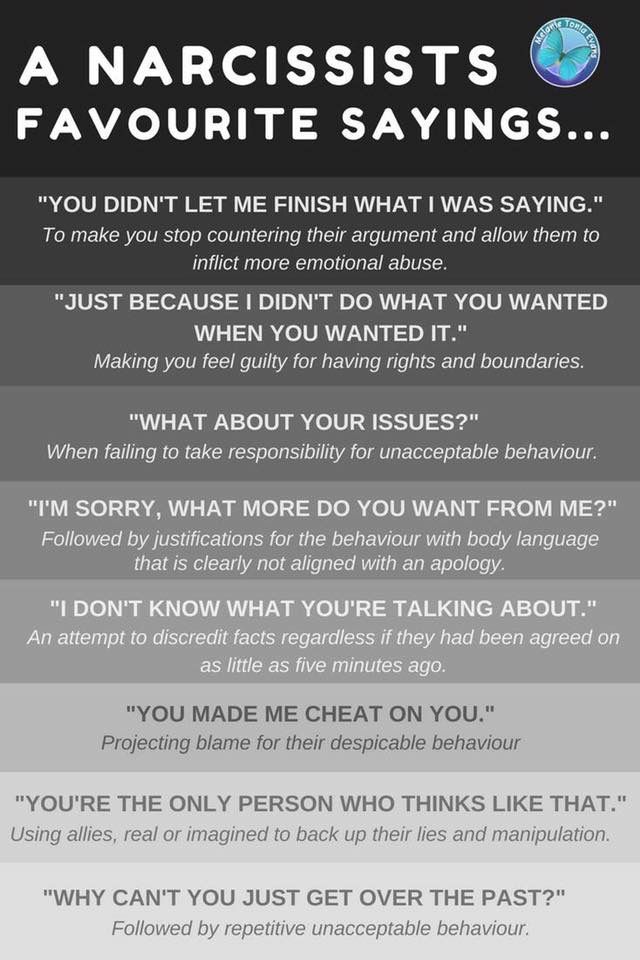
The way that features impair functioning in multiple areas — identity, self-direction, empathy, and intimacy — of a person’s life is the difference between an NPD diagnosis and having narcissistic traits.
Both past and current life circumstances can evoke multiple features, but may not necessarily be an ingrained part of who someone is (their personality).
A broad, general example of this would be someone who experiences a season of financial hardship after years of financial wealth. They may be preoccupied with fantasies of the wealth and power they used to have. They may also feel superior to others, become envious of those who are wealthy, and tend to gravitate toward people who make them feel important.
This individual may present with features of NPD, but these features are connected to their circumstances and not necessarily their personality.
In other words, just because a person may possess features of NPD, does not mean they don’t have the ability to love.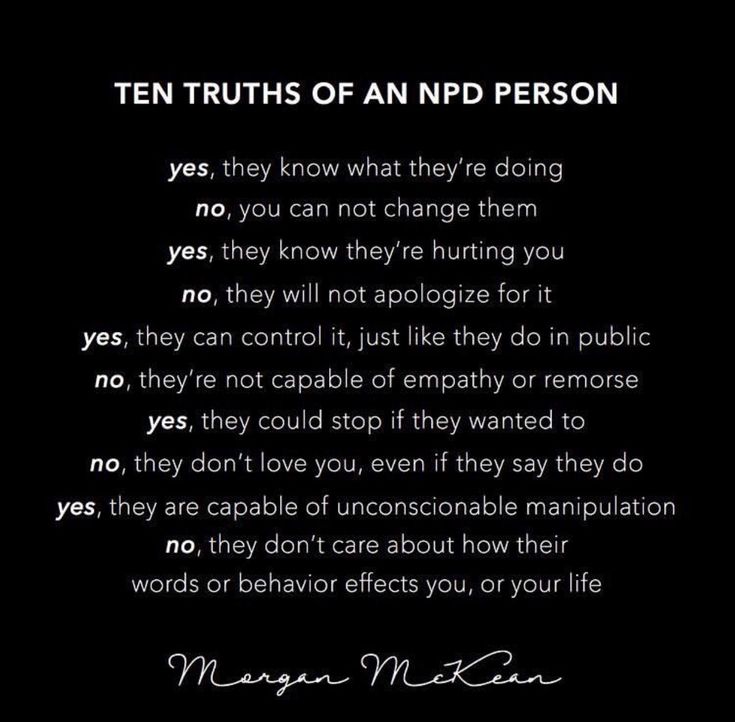 However, it is quite possible that their capacity to love may be limited.
However, it is quite possible that their capacity to love may be limited.
Any relationship with someone with features of NPD can be frustrating and difficult. When you love someone, it’s hard to walk away from them despite their imperfections. So, when you find yourself loving a narcissist, leaving may not be an easy task.
Therapy is strongly encouraged to assist with navigating relationship challenges.
Relationships with someone who has narcissistic traits can involve abuse, which could be emotional, physical, or sexual. If you find yourself in an abusive relationship, you can find yourself out of it, too — there is lots of help and hope available as you navigate your way.
However, what if you’re in love with someone who has narcissistic character traits, but not narcissistic personality disorder? In these cases, you may want to try some of the following:
- Seek counseling or therapy: Therapy can provide a safe space for you to process your feelings and explore your thoughts about your relationship.
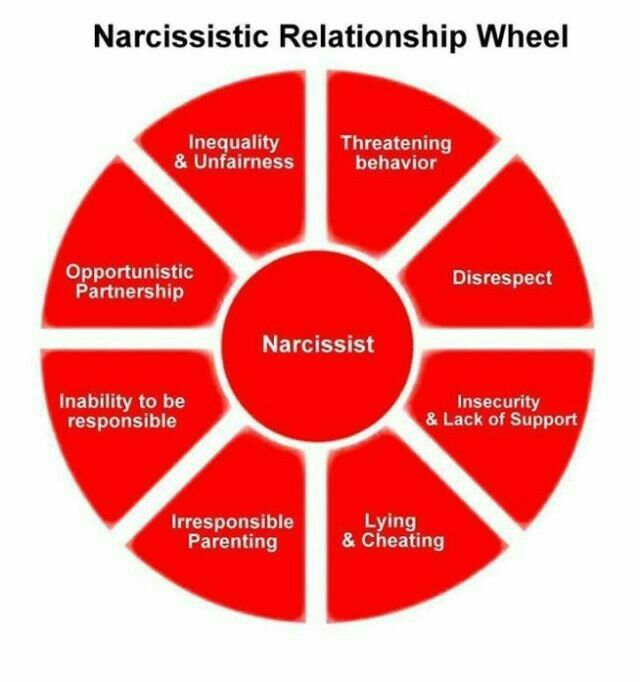 Engaging in therapy helps you understand yourself, identify your triggers, and develop coping skills.
Engaging in therapy helps you understand yourself, identify your triggers, and develop coping skills. - Practice self-care: It’s important to not lose yourself in the relationship. Taking time out for yourself allows you to reset and refocus on what is most important to you.
- Education: Educating yourself on NPD and narcissism can help you understand your significant other. In addition, the more you’re educated about the topic, the more equipped you will be to address problems and issues that arise in your relationship.
Whether it’s describing a partner in a failed relationship or an A-list celebrity, narcissism appears to be the new buzzword for describing individuals who are perceived to be selfish or self-centered.
According to a 2018 paper, “Conceptual confusion in defining NPD may render this disorder particularly prone to being attributed to individuals, especially those in public limelight, without taking a full history and examination, failing to confirm functional impairment, or diagnosing on the basis of a single trait.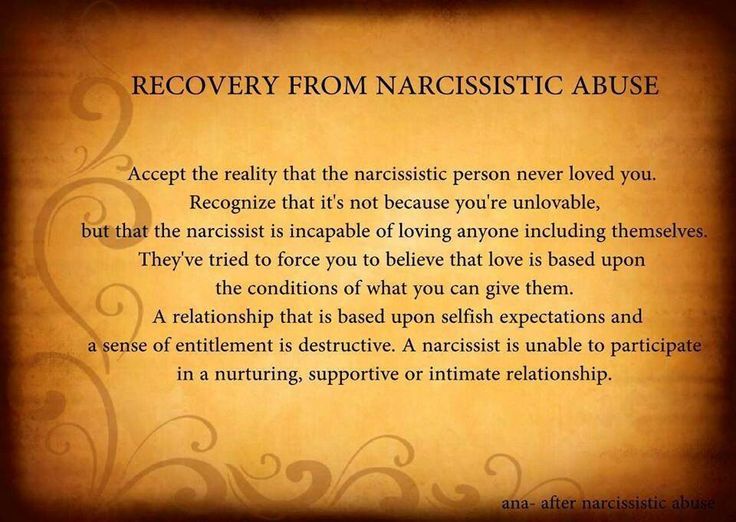 ”
”
Therefore, it’s important to note that only a licensed mental health clinician can diagnose someone with NPD.
If you or someone you love is suspected to have NPD, it’s important to be evaluated. Help is obtainable and treatment options are available.
DRK Beauty Healing is a mental health and wellness company for Black, Latinx, Indigenous, South Asian, East Asian, and all women and nonbinary People of Color to discover, experience, and create their unique well-being journey. They offer free therapy through their nonprofit initiative, one of America’s leading free mental health resources. They also provide access to a broad range of affordable resources (e.g., support group sessions) from culturally responsive therapists, faith-based teachers, and practitioners of various spiritual, healing, and occupational modalities. DRK Beauty Healing believes its holistic approach to healing will ultimately empower People of Color across the globe to forge their unique path to wellness.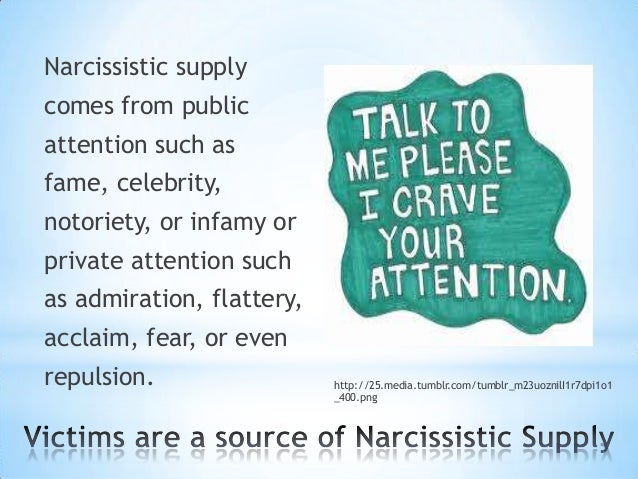
Who can love daffodils? | PSYCHOLOGIES
33,361
Human among humans
Narcissist + empath
Many articles have been written about how selfish narcissists love the company of kind and warm people. Their insatiable ego is "feeded" by care and compassion. There is a high probability of leaving such a relationship with a feeling of "used" - squeezed out and devastated.
“My ex-girlfriend is narcissistic, arrogant and selfish, she knew how to be charming and nice for her own benefit. People interested her for only two reasons. Or they could benefit her, and then she turned on her charm. nine0003
Or they could join her "retinue" - and then, it doesn't matter if they were friends or romantic, the scenario turned out the same. She showed interest, went for rapprochement and “conquered” a person, so that later she could play with him like a cat with a mouse, then shortening, then increasing the distance, ”says 38-year-old Denis.
Narcissist + Narcissist
What happens when a narcissist meets a narcissist? Is there an attraction between them, or, on the contrary, will they not tolerate a "twin" next to them? nine0003
“Once I saw her interacting with another narcissist, our friend's even more obnoxious and arrogant brother,” continues Denis. — We spent the weekend together in the country, and I watched them. It was like a dance of two cobras. They puffed out their hoods, showing their strengths, but also showing mutual respect. By the end of the weekend, they were completely enamored with each other."
In 2016, researcher Alex Burton, together with John Milton Adams and colleagues in the Department of Psychology at the University of Alabama, published the results of Project 1 under the odious title: "You remind me of someone delightful." The project helped to understand why and to what extent similar personalities can like each other.
"I love myself in you"
The study assessed the reactions of narcissistic people to actors exhibiting narcissistic or "anti-narcissistic" behavior.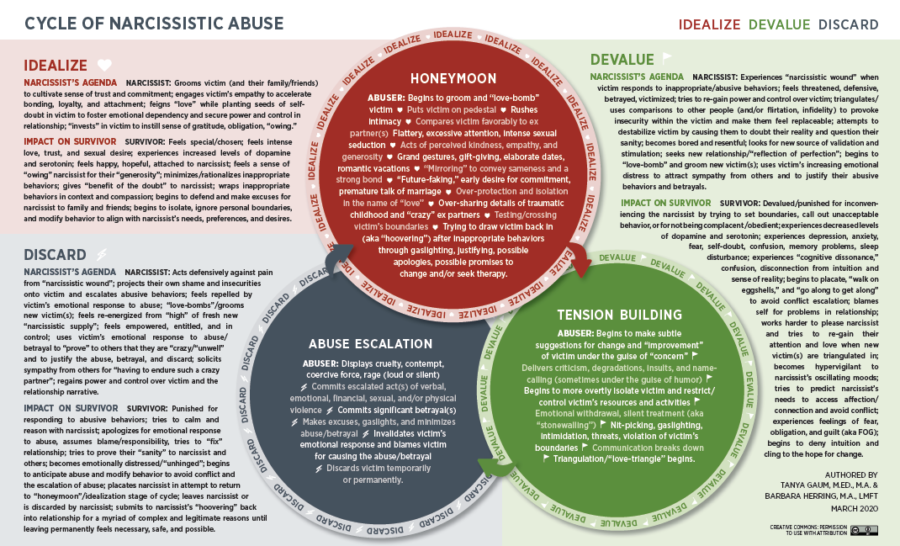 It turns out that like attracts like. And the sympathy of narcissists for similar people is due to their perceived similarity.
It turns out that like attracts like. And the sympathy of narcissists for similar people is due to their perceived similarity.
The “narcissistic tolerance theory,” psychologists say, explains why even the most intolerable, annoying narcissists can arouse sympathy in people with the same personality type. Those traits that they accept in themselves and consider their strengths, they like in others.
No self-criticism
Trial lawyer, criminologist, and author of How to Read People, Wendy Patrick, writes that these results confirm previous research findings that narcissists are more likely to relate to those with whom they show some degree of similarity. nine0003
It's worth noting, notes Wendy Patrick, a simple conclusion. Since narcissists like each other more because of their apparent similarity, it is unlikely that they feel hatred towards themselves, towards their narcissistic sides.
For other people, this means that you should not expect self-criticism from such people, it makes no sense to expect that a heart-to-heart talk “will open their eyes” to the negative aspects of their character.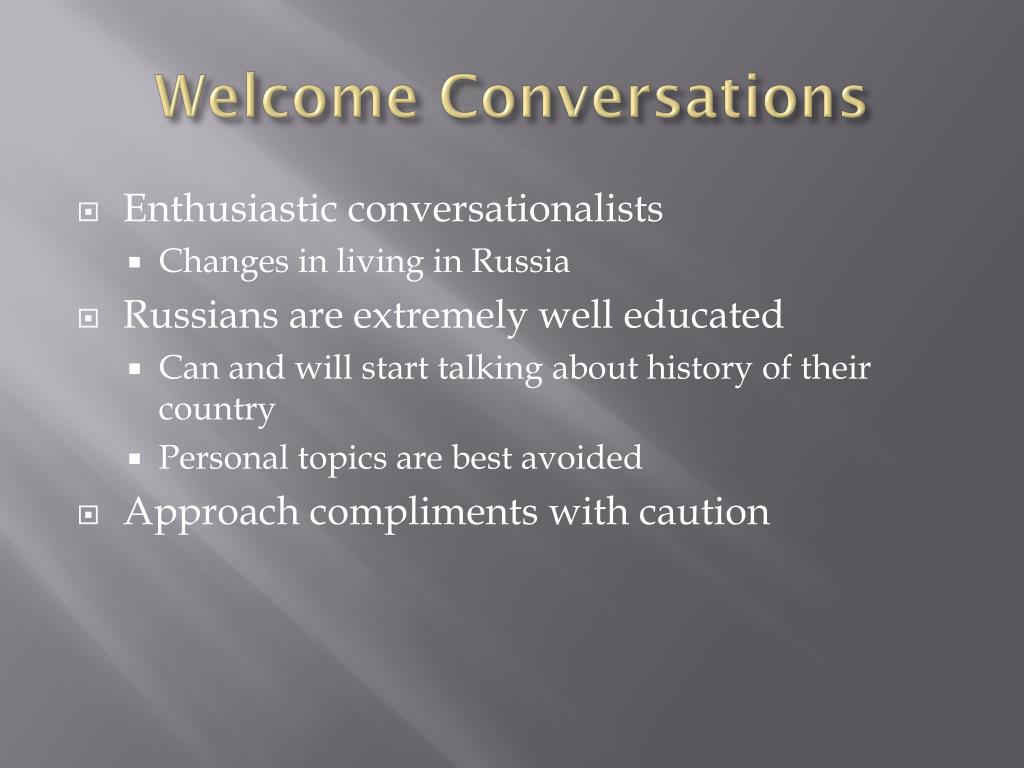 This should be taken into account so as not to waste time and resources. It is better to use them for your own recovery. nine0003
This should be taken into account so as not to waste time and resources. It is better to use them for your own recovery. nine0003
There is always a better option
If they like each other, does this mean that such unions will be strong? But no, psychologists say. Mutual sympathy does not guarantee tolerance and fidelity. Biologists Carrie Haslam and Tamara Monrose from Gloucestershire College (UK) conducted a study 2 that explains this pattern.
Inflated self-esteem of narcissists often breeds dissatisfaction with relationships, they are prone to manipulation, selfish and lack empathy. In addition, these people are attracted to partners with high social status, because in this way narcissists get opportunities for themselves to rise above. nine0003
“Combined with low levels of partner fidelity, this can lead narcissistic individuals to constantly seek new relationships with those who are even more attractive,” Wendy Patrick comments on the results of the published study.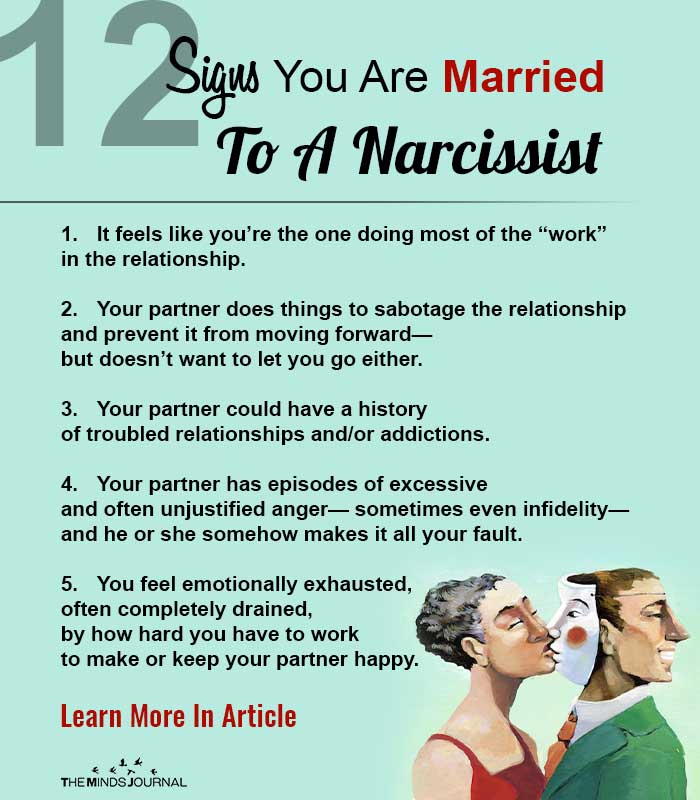
What should the rest of us do?
And what about those who themselves are not like that, but have suffered in relations with these unbearable, but sometimes very attractive partners? To begin with, to realize what qualities of yours attracted such a person, advises Wendy Patrick. nine0003
Kindness, compassion, empathy, a tendency to take care of others are wonderful traits. And if you have them, then, of course, you deserve better than a selfish, narcissistic and not appreciating partner.
Although many refer to the period of their relationship with narcissists as "lost time", in some ways it is a valuable experience. It helps us appreciate how much love, respect, and devotion are valuable to us. So a failed relationship in the past can pave the way for a healthy union in the future. nine0003
Six books about the war. Holocaust Remembrance Day
“My mother-in-law declared war on me. How to save a marriage?
For the sake of what to continue to live in a period of crisis: for those who have lost the meaning of life
Ghosts of the past: how I lived in Auschwitz — memories of a child of concentration camp prisoners
“I can’t keep my interest in anything. I drop everything halfway through”
I drop everything halfway through”
“It’s inconvenient to ask my husband for money every time, but he doesn’t understand hints”
Narcissists: who are they, signs of narcissism, rules of conduct
The article was reviewed and commented by clinical psychologist and researcher Kristina Andreyuk.
- Who is
- How to recognize
- Men and women
- Types
- Treatment
- How to communicate
- How to leave
Who is a narcissist?
Advertising on RBC www.adv.rbc.ru
Narcissism is a feature of the psyche in which a person perceives himself as a unique individual, considers himself better than others, which is not always true. In fact, these traits are present in the character of many people. In a healthy personality, they result in ambition and a desire to please. But under a certain scenario, laid down in childhood, such behavior can turn into a pathology, which is often accompanied by other diagnoses, such as bipolar disorder and depression.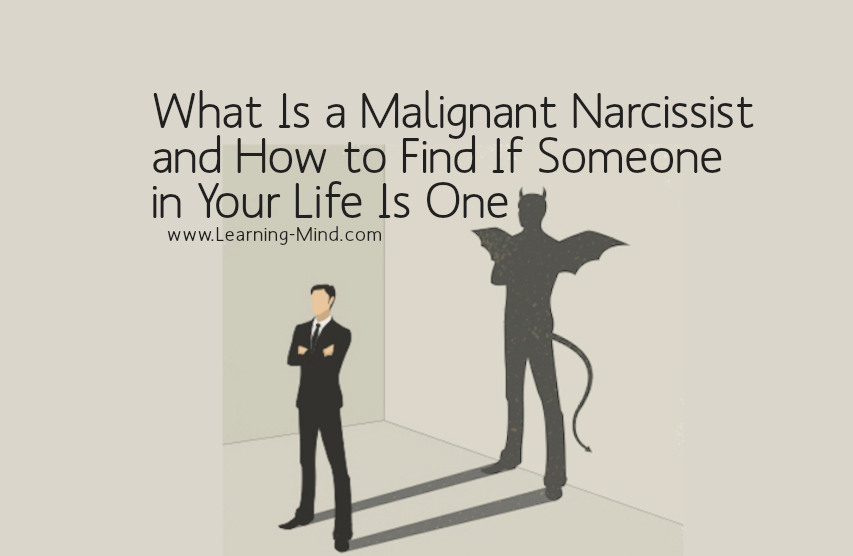 nine0003
nine0003
Contrary to popular belief, people with narcissistic personality disorder do not like themselves very much. Rather, they admire their grandiose projection, which allows them to close gaps in their own self-esteem. Such protection allows narcissists to avoid deep feelings and self-doubt. A person with this disorder does not tolerate minimal criticism, he perceives remarks as a personal insult and is able to throw a tantrum if someone refuses to admire him. You can check how narcissistic traits are characteristic of you or your partner using the NPI questionnaire [1]. The more positive answers a person gives to statements from the list compiled by American psychologists and researchers Robert Raskin and Howard Terry, the more narcissistic features appear in him. Meeting people with a true personality disorder is not easy. According to various sources, their number in society varies from 1 to 6%. nine0003
How to recognize a narcissist?
According to the American psychiatrists' handbook "Diagnostical and Statistical Manual of Mental Disorders" [2], there are nine signs of narcissistic personality disorder.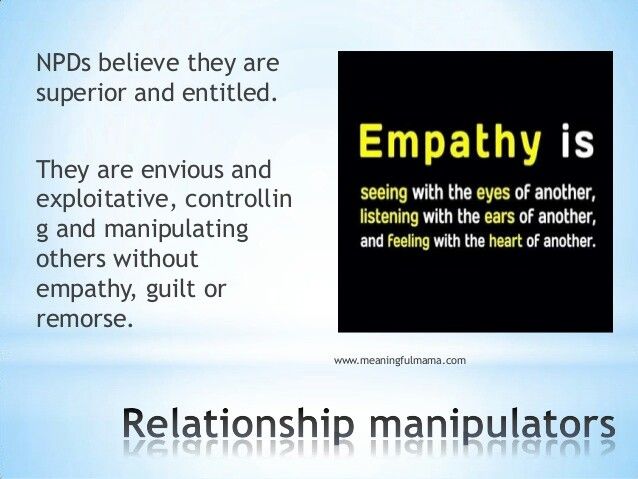 If at least five of these are present, a doctor may suspect a disorder. Usually such a person:
If at least five of these are present, a doctor may suspect a disorder. Usually such a person:
- Has an inflated sense of self-importance. He often exaggerates his achievements and talents. Expects people to admire his actions, even if they were minor. If the narcissist organized the cleaning of the yard, then at least the district newspaper should write about it. nine0094
- Preoccupied with fantasies of unlimited success, power, beauty, or ideal love. To each new partner, the narcissist can say that he is the love of his life or wait for him to fulfill his fantasies. The beginning of such a relationship is a magical, but short period. In work, the narcissist, according to him, is a genius. If he has not been able to achieve great results, he is simply sure that success lies ahead of him, even if it is time for him to retire.
- Believes that he is not like others and has few equals. Therefore, the environment must match. The narcissist chooses “special” people as friends and partners, for example, with high social status or model appearance.
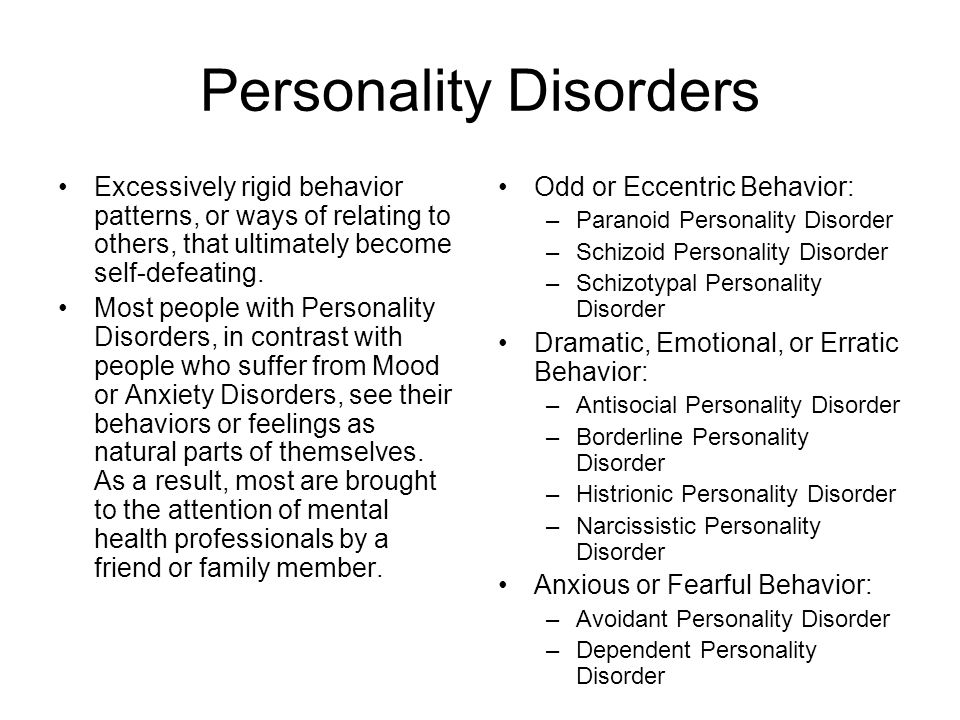 Thus, he seems to reflect himself through them, because his problems are unique and can only be understood by special people. Narcissists like to be associated with big brands, whether it be in their work projects or clothing choices. nine0094
Thus, he seems to reflect himself through them, because his problems are unique and can only be understood by special people. Narcissists like to be associated with big brands, whether it be in their work projects or clothing choices. nine0094 - Requires constant attention, recognition and admiration, even if you just took out the trash or cooked dinner.
- Absolutely sure that everyone owes him. Expectations for other people are usually very high. Close people are obliged to fulfill the requests of the narcissist at the first call.
- Uses other people to achieve his own goals. For him, it goes without saying. The narcissist is not used to sincerely thanking for services and does it only within the framework of the accepted ethical norm. nine0094
- He has difficulty experiencing empathy. Such people are not able to draw a parallel between their feelings and the feelings of others. Therefore, the narcissist does not even think about when he hurts someone. Very often, this behavior is mistaken for abuse by partners of narcissists.
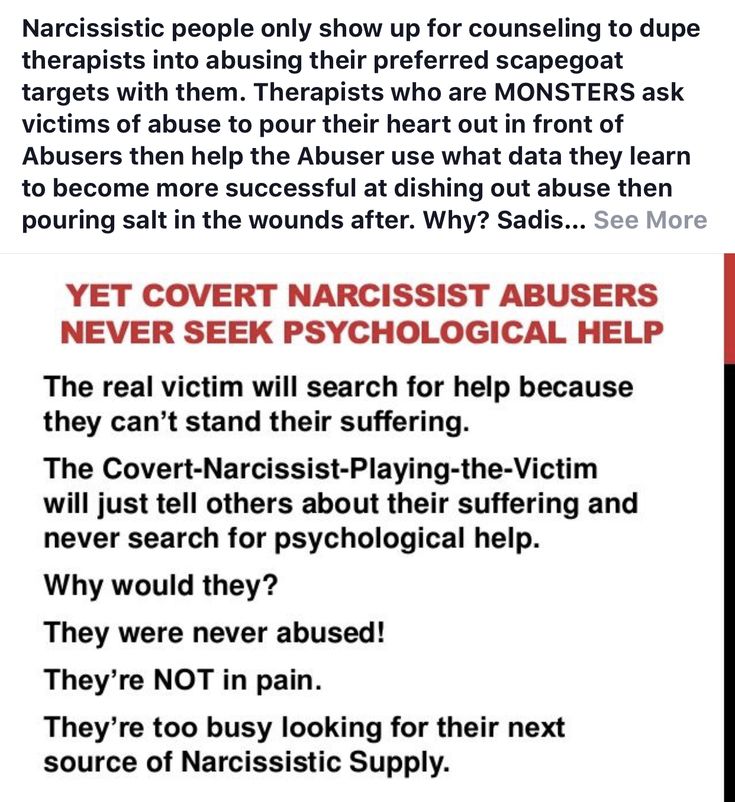 In fact, he may be concerned with how to hide the shame of his failure and not lose his greatness.
In fact, he may be concerned with how to hide the shame of his failure and not lose his greatness. - Often jealous of others and believes that others envy him. In the latter case, it is by this circumstance that the narcissist explains the criticism of others in his address. nine0094
- Arrogant towards other people. Such a person absolutely sincerely believes that he is better than others, and other people's shortcomings are an excellent reason to assert himself.
To decide to break up with a narcissist, write down the reasons for breaking up and keep the list with you
© Unsplash
Men and women are narcissists disorder in one form or another, men are more likely to be affected by this disorder than women. The data were collected over a period of 30 years, and the percentage ratio between the sexes did not change much during this time [3]. nine0003
In doing so, the researchers noted two important points. First, male narcissists were more likely than females to exploit others and believe they were entitled to certain privileges.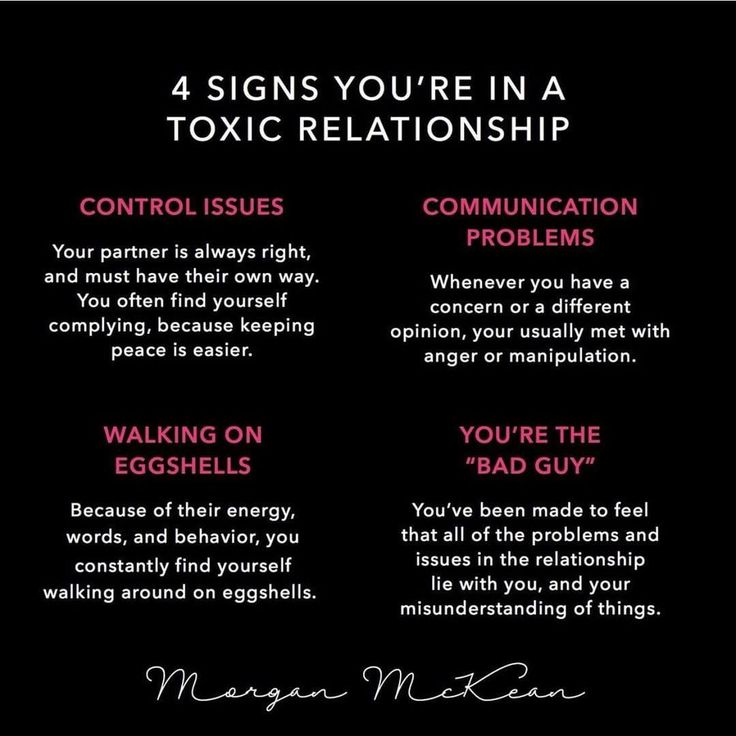 Secondly, men were more likely to seek power. Scientists explain this by the fact that until recently, leadership qualities did not meet the criteria for femininity. According to one of the authors of the study, Emily Griyalva, girls are more often criticized for aggressiveness and authoritarianism. Thus, society unconsciously suppressed manifestations of narcissistic behavior [4]. nine0003
Secondly, men were more likely to seek power. Scientists explain this by the fact that until recently, leadership qualities did not meet the criteria for femininity. According to one of the authors of the study, Emily Griyalva, girls are more often criticized for aggressiveness and authoritarianism. Thus, society unconsciously suppressed manifestations of narcissistic behavior [4]. nine0003
As regards vanity and striving for a vivid self-presentation, in this respect there was no significant difference between men and women.
Types of narcissists and how they are formed
There are different approaches to the formation of narcissism, including studies that allow for genetic influence, but this is not a decisive factor in the formation of personality.
In 1914, Sigmund Freud stated that children somehow go through a stage of primary narcissism. He believed that this was an intermediate stage of growing up, but later he singled out other forms of narcissism, to a greater extent associated with mental disorders.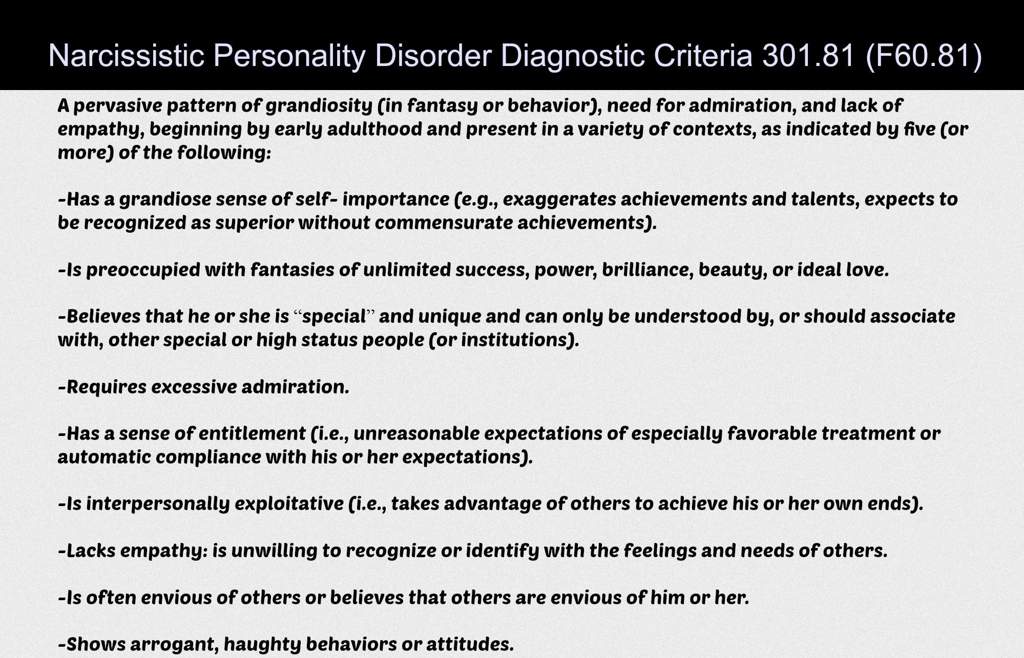 nine0003
nine0003
Neuro-Freudian Karen Horney argued that the development of such character traits may be due to the fact that parents in various ways pushed the child to create psychological protection. For example, they could delegate the embodiment of their ambitions or rejected the real manifestations of the child, instilling a sense of inferiority.
The contribution of parental figures to the formation of narcissistic disorder is also noted by psychotherapist and researcher Otto Kernberg. He compares narcissism with a false prop that a person erects in order to receive from others the admiration and confidence that he did not receive from his parents in childhood and cannot give himself in adulthood [5]. nine0003
In the book of psychologist Elinor Greenberg "Borderline, Narcissistic, and Schizoid Adaptations: the pursuit of Love Admiration and Safety" [6], the author divides narcissists into three types:
- Open, or grandiose. Embodied stereotype.
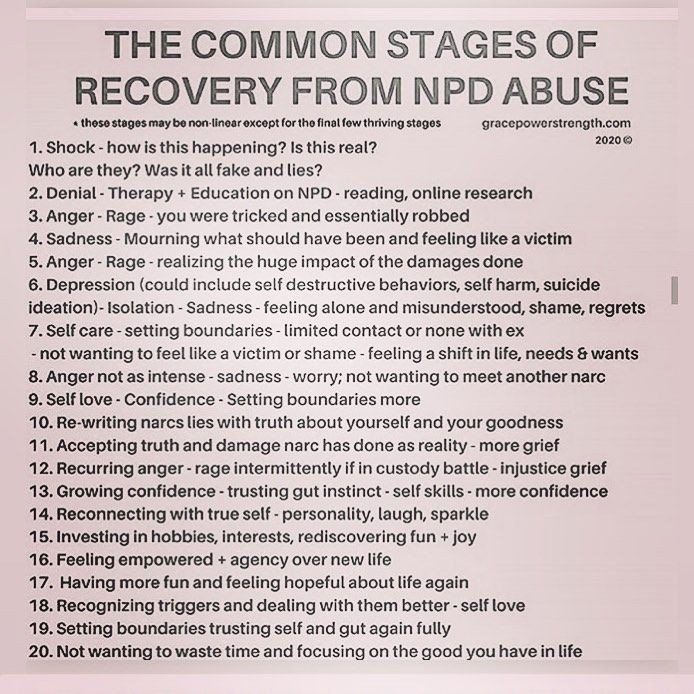 A bright character illustrating this feature of development and behavior. His whole being screams, "Look at me." This childish behavior indicates that a person is stuck at an age when adults pay a lot of attention to the child, praise him excessively, suggest that he is special, forgetting to teach him empathy. nine0094
A bright character illustrating this feature of development and behavior. His whole being screams, "Look at me." This childish behavior indicates that a person is stuck at an age when adults pay a lot of attention to the child, praise him excessively, suggest that he is special, forgetting to teach him empathy. nine0094 - Hidden or depressive. Such people can grow up in families where one of the relatives, including mother or father, was a narcissist. At the same time, there was a high level of competition for love and attention. On the one hand, children copied the behavior model of narcissistic parents, on the other hand, such a child formed protective mechanisms, since an adult narcissist would certainly assert himself at his expense. Growing up, such people may not openly say that they are special. They would rather choose a person, a book, an object and exalt their virtues. Thus, the narcissist puts them on a par with himself. In personal relationships, such people do not like direct conflicts.
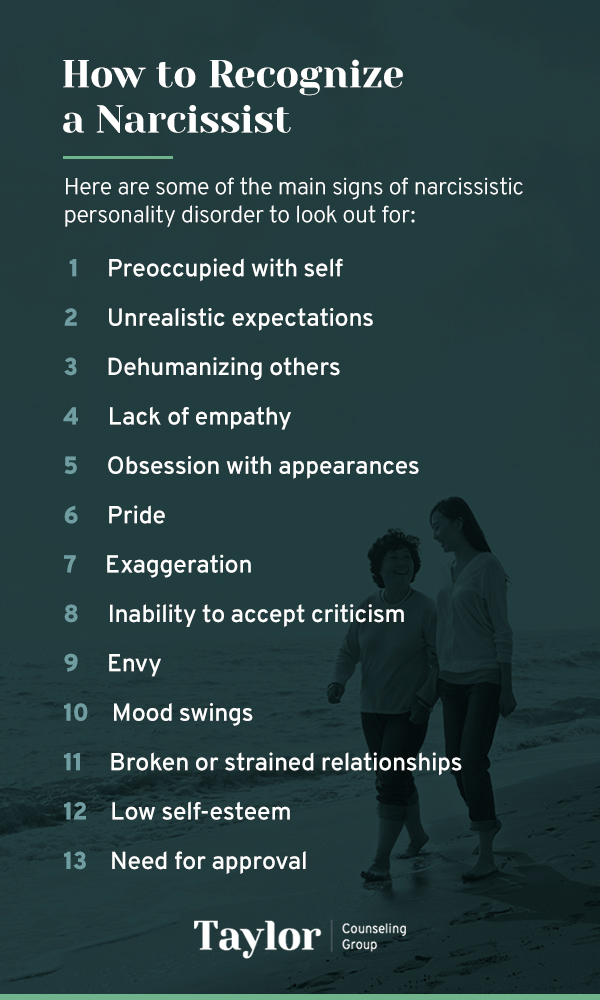 Their weapon is passive aggression. A favorite technique is to promise and not deliver, and then blame the other person for everything. They tend to be insecure, and ambivalent behavior often leads them to depression. nine0094
Their weapon is passive aggression. A favorite technique is to promise and not deliver, and then blame the other person for everything. They tend to be insecure, and ambivalent behavior often leads them to depression. nine0094 - Perverse or toxic. Such people go even further. They love not only admiration, but also submission. Narcissists of this type love to wreak havoc around themselves, the same that reigned in their childhood in relationships with their parents. These narcissists often give their partners an emotional rollercoaster of humiliation and praise. They take pleasure in destroying other people's careers, destroying people morally and spiritually.
Mixed representatives of these types also exist. nine0003
Treatment for narcissism
Most often, narcissists don't even suspect that something is wrong with them, because they don't tend to blame themselves for anything. So if such people were seen by a specialist, then the reason for this could be related problems: depression, bipolar disorder, or excessive alcohol consumption.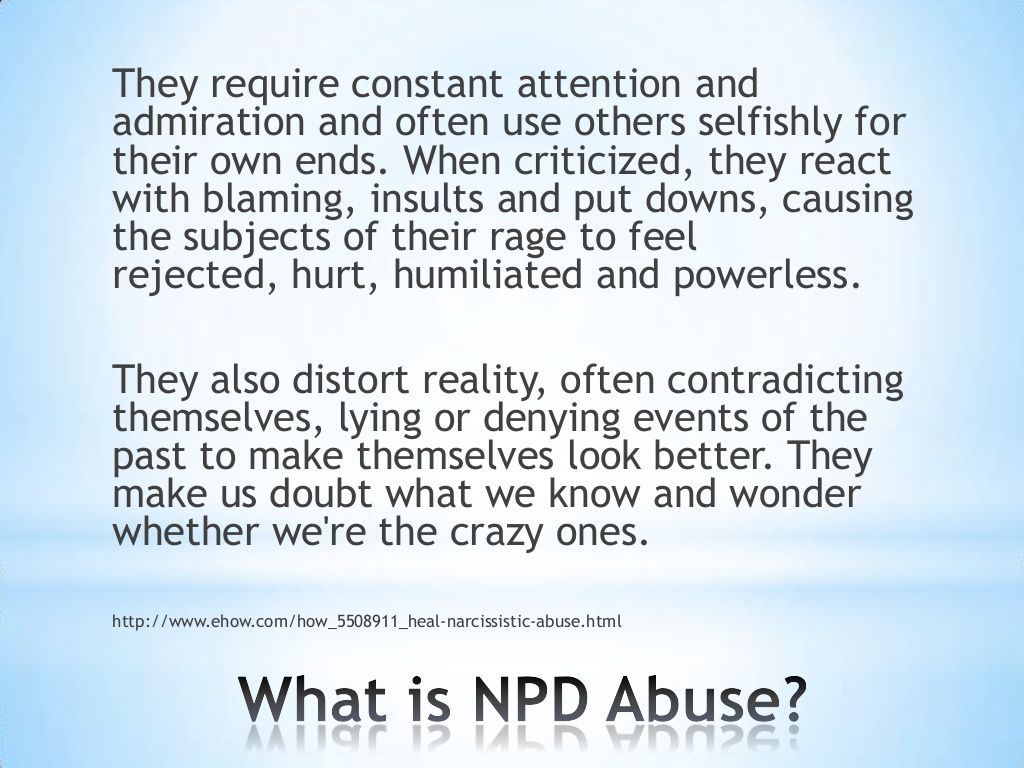 There is no cure for narcissism yet. Psychotherapy has a positive effect on such patients. Properly structured classes can help a person establish relationships with loved ones, learn to withstand criticism, stop despising themselves and others, set realistic goals and achieve them, and not dream of sky-high heights [7]. nine0003
There is no cure for narcissism yet. Psychotherapy has a positive effect on such patients. Properly structured classes can help a person establish relationships with loved ones, learn to withstand criticism, stop despising themselves and others, set realistic goals and achieve them, and not dream of sky-high heights [7]. nine0003
Although there is no cure for narcissism yet, psychotherapy has a positive effect
© Thiago Matos / Pexels
How to communicate with a narcissist?
Building an even relationship with a narcissist is not always easy. Some prefer to just cut them off. But what if this is not possible? Let's say that person is a family member or ex-husband/wife with whom you have children in common.
- The first thing psychologists advise is to try to detach yourself emotionally. Ignore toxic statements and manipulations. It is useless to expect sudden changes in behavior from such people. According to research, narcissists do not tend to learn from their own mistakes simply because they are sure they did not make them [8].
 nine0094
nine0094 - Your personal boundaries are your guard against the actions of a narcissist. “This won’t happen to me anymore”, “I won’t fall for these manipulations” - phrases that will help to avoid an unpleasant conversation or intrusive requests of a narcissist. You can't wait for a response.
- The shortest answers, conditionally "yes" and "no", are your main allies in a dialogue with such a person if he began to resort to manipulation. By minimizing communication, you give him much less reason to hook on to some phrase and launch an attack. nine0094
- Stick to the topic of conversation and don't get sidetracked. Perhaps your counterpart will try to knock you out of the saddle with accusations or get personal. In this case, the phrase “We are going off topic” will help bring the discussion back on track.
- Compliments. If you really need to get something out of a narcissist, don't be stingy with praise. Most likely, he will even enjoy fulfilling your request.
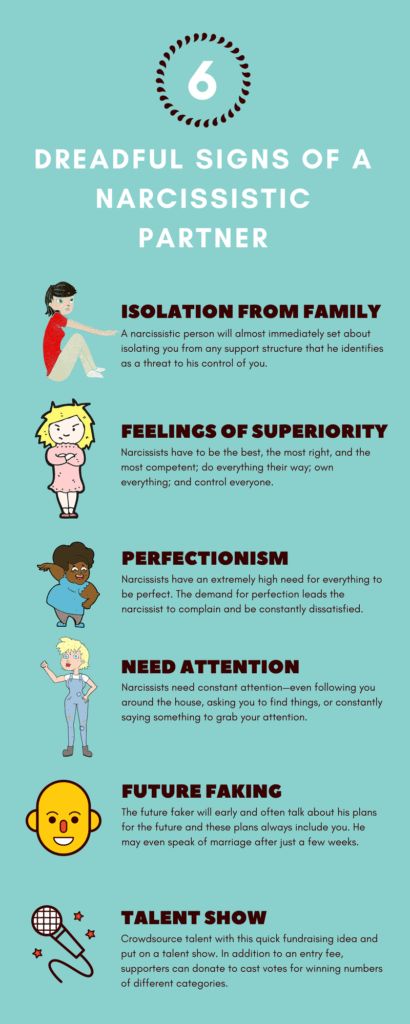 Yes, this is manipulation, but who said that only a narcissist can use this technique? nine0094
Yes, this is manipulation, but who said that only a narcissist can use this technique? nine0094
How to get away from a narcissist
The end of a relationship is never easy. With a narcissist, breaking up can be doubly difficult. For him, the fact that he was abandoned is an intolerable insult. That is why he will try by hook or by crook to bring the partner back. During this period, he will become sensitive and gentle, will swear eternal love and will do this until his victim loses his vigilance. Often, therefore, relationships with a narcissist develop into a cycle of breaks and reunions. Nevertheless, if you decide to put an end to your communication, psychologists recommend the following:
- Write down the reasons why you want to leave. It's best to keep this list around in case the narcissist decides to drag you back into the relationship by talking about eternal love.
- Give up illusions. It is difficult for such people to change, especially without the help of a specialist.
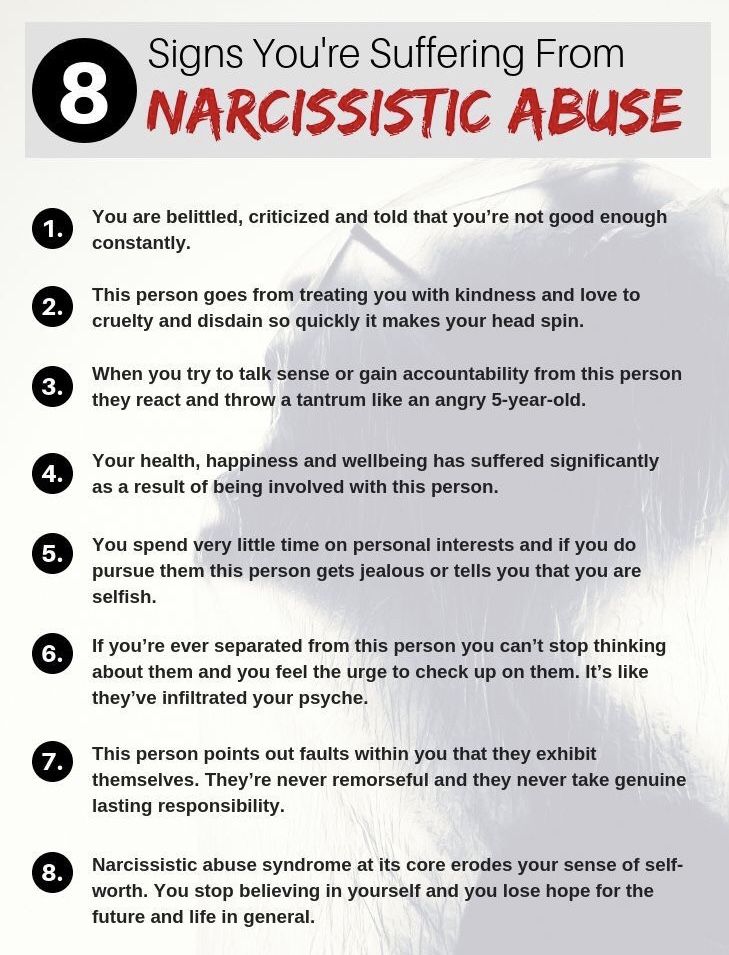 Do you have time to wait until he finally learns to show empathy and respect?
Do you have time to wait until he finally learns to show empathy and respect? - Cut off all contacts. Ask a friend to pick up your belongings from the narcissist. Block this person in all phones and messengers. If you have children in common, at first ask someone close to you to be with you at general meetings. nine0094
- Let go of your feelings. Breaking up, even with a toxic person, is always hard. Give yourself time to get over this situation. Just don't expect the narcissist to suffer in return. Most likely, during this period, he will try to restore his shattered ego and will choose not the most pleasant ways for this: either he will tell everyone what a bad person you are, or seek solace in the arms of someone else.
There are nine signs of narcissism, but five signs can already be suspected of it
© Martino Pietropoli / Unsplash
Kristina Andreyuk, clinical psychologist, researcher. Research interests: mentalization, manipulative behavior, personality disorders
In addition to family relationships, external factors can also enhance narcissistic traits.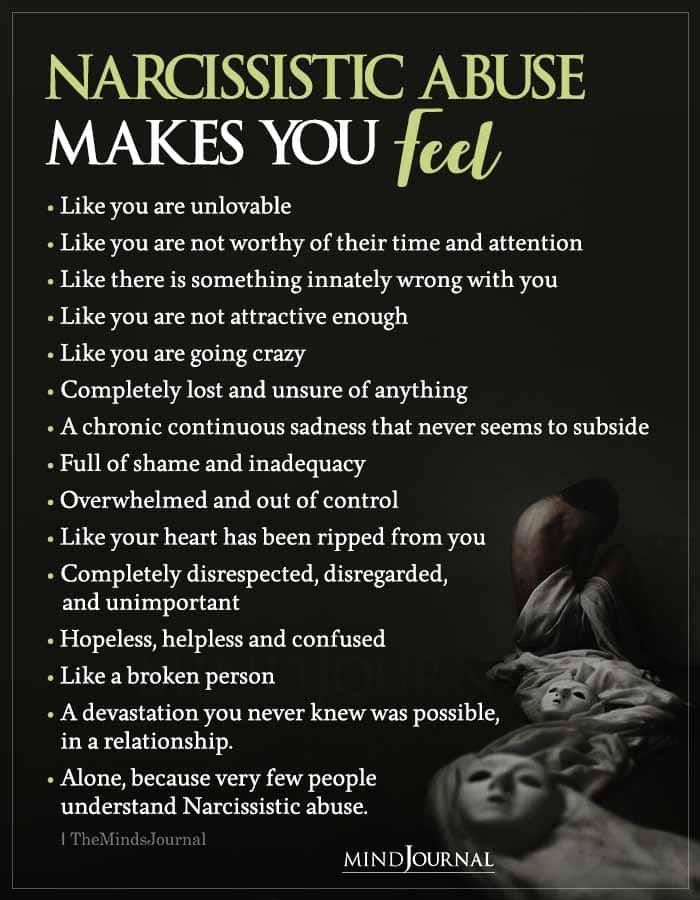 Media and social networks broadcast often unattainable ideals, and self-improvement services are imposed by advertising. All this can affect the psyche.
Media and social networks broadcast often unattainable ideals, and self-improvement services are imposed by advertising. All this can affect the psyche.
In "normal narcissism" people try to please others, to achieve success in work, which helps them to adapt in society. However, in the case of pathology, a person's ideas about themselves are distorted. In this case, the emphasis is on the grandiosity of his figure. He experiences difficulties in forming adequate ideas about other people, abuses manipulations, grossly violates the boundaries of the interlocutor and ignores his comfort. Narcissistic features can manifest themselves in pathological perfectionism, hypochondria, constant attempts to correct their "flaws", including, for example, transforming one's appearance as the most noticeable attribute of self-presentation for others. nine0003
In superficial communication, narcissists give the impression of being rather pleasant people. According to research, many socially active narcissists have charisma, know how to hold an audience, are not afraid to express themselves, appear self-confident, and have high claims regarding academic and professional achievements.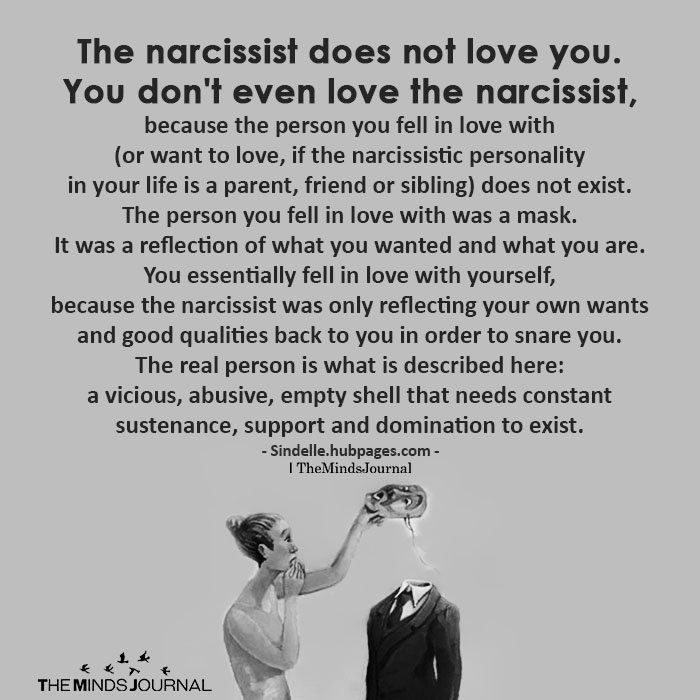 These qualities often show up in job interviews and help narcissists get into leadership positions. However, such bosses may use too subjective criteria when evaluating employees, focusing not on their professional achievements, but on the degree of admiration, devotion, and the absence of doubts about the correctness of the leader's decisions. nine0003
These qualities often show up in job interviews and help narcissists get into leadership positions. However, such bosses may use too subjective criteria when evaluating employees, focusing not on their professional achievements, but on the degree of admiration, devotion, and the absence of doubts about the correctness of the leader's decisions. nine0003
Narcissists have difficult relationships in close relationships. In partners and friends, they are primarily looking for confirmation of their exclusivity, superiority (which reinforces vulnerable self-esteem). Often, such people confuse the attachment that accompanies healthy partnerships and collaborations with the addiction that can shackle and inspire fear. The demands of constant adoration and recognition of their grandiosity, which the narcissist often implements in the form of excessive control over the thoughts and feelings of a partner, in most cases, sooner or later are not fully satisfied, which leads to conflicts and increased manipulative behavior.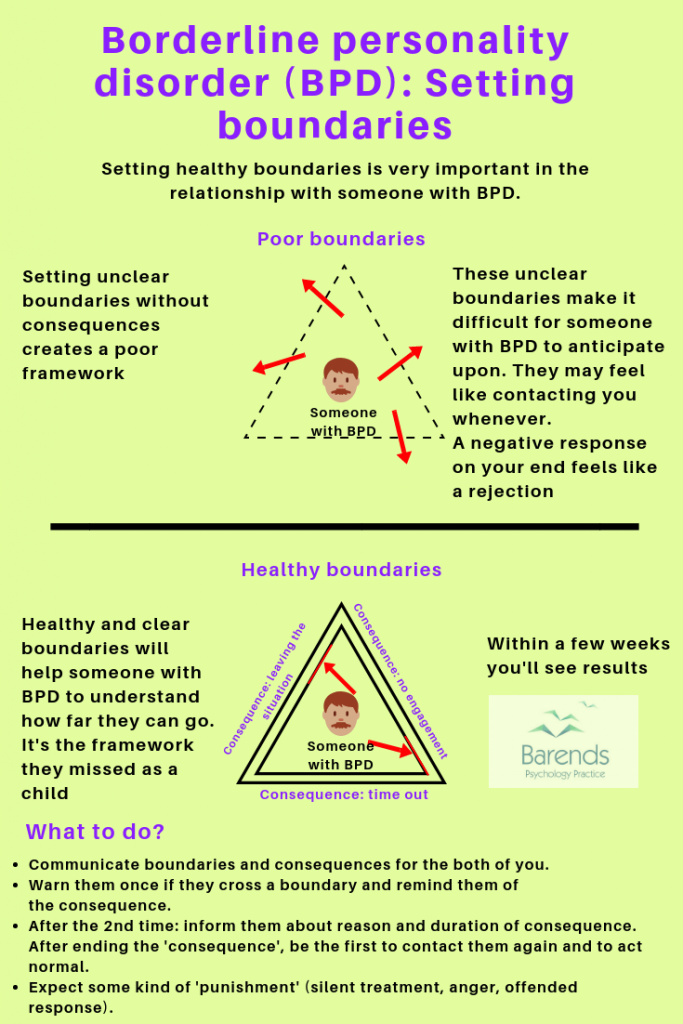 nine0003
nine0003
If you have found any manifestations of narcissistic traits in yourself and want to change them, then it will be useful for you to develop the skills of self-reflection, mentalization (understanding of mental states), work on the development of emotional intelligence, empathy (for example, discuss with friends the films you have watched, read books in terms of understanding the inner world of the characters, their motivation, etc.). It is very important to learn to analyze what is happening from different positions, without sliding into extreme points, such as, for example, idealization and depreciation - look for alternative explanations. Try to look at situations or actions from different angles, noting the possible positive aspects of seemingly negative events, including during conversations with loved ones. nine0003
If your loved one has narcissistic traits, you need to learn to track the emotional states of both you and your interlocutor. It is necessary to soberly analyze situations of interpersonal communication.